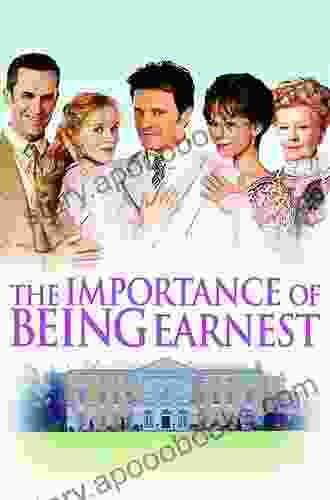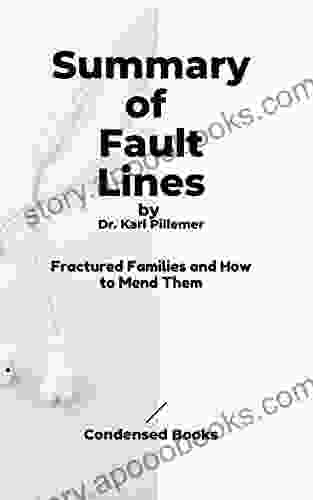Embracing the Frivolous: Unveiling the Importance of Being Earnest

Synopsis
In the realm of literature, few plays have captured the essence of wit, social satire, and theatrical finesse as Oscar Wilde's "The Importance of Being Earnest." This scintillating comedy of manners has enchanted audiences for over a century, inviting them to revel in the frivolous pursuits of high society while contemplating the enduring significance of integrity and authenticity.
4.5 out of 5
| Language | : | English |
| File size | : | 1769 KB |
| Text-to-Speech | : | Enabled |
| Screen Reader | : | Supported |
| Enhanced typesetting | : | Enabled |
| Print length | : | 59 pages |
| Lending | : | Enabled |
| X-Ray for textbooks | : | Enabled |
Characters and Plot
The play revolves around two charming young gentlemen, Algernon Moncrieff and John Worthing. Algernon, a witty and cynical bachelor, invents the persona of "Ernest" to escape the tedious social obligations of his London life. John, on the other hand, assumes the alias "Ernest" in the countryside to woo the beautiful Gwendolen Fairfax. Unbeknownst to each other, they create a web of deceit that leads to a series of hilarious entanglements and mistaken identities.
As the play unfolds, Wilde deftly weaves a tapestry of characters: the witty and independent Gwendolen; the pragmatic and formidable Lady Bracknell; and the loyal and devoted Cecily Cardew. Each character embodies a unique facet of society, from the shallow preoccupations of the upper class to the romantic idealism of youth.
Witty Dialogue and Social Commentary
One of the defining features of "The Importance of Being Earnest" is its brilliant use of language. Wilde's characters engage in a constant flurry of witty repartee, their words often carrying multiple meanings that reveal both the superficiality and the underlying truths of Victorian society.
Beneath the façade of frivolous banter, the play offers a subtle yet pointed critique of the social mores of the time. Wilde satirizes the preoccupation with appearances, the hypocrisy of the upper class, and the absurdity of the marriage market. Through Algernon and John, he questions the very notion of earnestness, suggesting that it is often merely a mask to conceal one's true self.
Themes of Identity and Authenticity
Despite its seemingly frivolous nature, "The Importance of Being Earnest" explores profound themes of identity and authenticity. The characters' constant use of aliases and deceptions highlights the fluidity of identity and the importance of being true to oneself.
As the play progresses, the characters gradually shed their masks and embrace their true selves. Algernon, once a cynical and aloof bachelor, discovers the joys of love and responsibility. Cecily, once a naïve and sheltered young woman, develops a strong and independent spirit. Through their transformations, the play suggests that true happiness lies in embracing one's own unique qualities and living authentically.
Biographical : Oscar Wilde
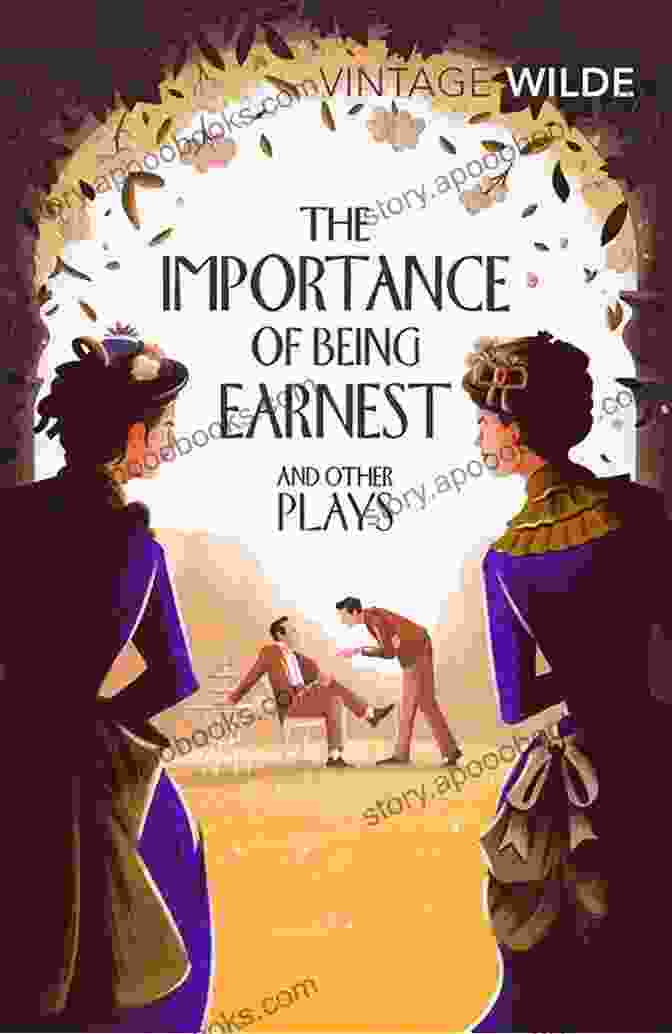
To fully appreciate the genius of "The Importance of Being Earnest," it is essential to delve into the life and legacy of its creator, Oscar Wilde. Born in Dublin in 1854, Wilde was a precocious child who displayed a prodigious literary talent from an early age. He studied at Trinity College Dublin, where he excelled in classics and developed a lifelong fascination with the ancient Greek dramatists.
After graduating, Wilde moved to London to pursue a career in writing. He quickly established himself as a prominent figure in literary and society circles, renowned for his wit, charm, and flamboyant lifestyle. Wilde's first successful play, "Lady Windermere's Fan" (1892),was followed by a series of other theatrical triumphs, including "A Woman of No Importance" (1893) and "An Ideal Husband" (1895).
In 1895, Wilde penned his masterpiece, "The Importance of Being Earnest." The play was an instant success, capturing the hearts of audiences with its sparkling dialogue, social satire, and memorable characters. However, shortly after the play's triumph, Wilde's life took a dramatic turn.
In 1895, Wilde was arrested and charged with gross indecency for his relationship with Lord Alfred Douglas. He was convicted and sentenced to two years in prison. His imprisonment had a profound impact on his life and work, shattering his reputation and leaving him a broken man.
After his release, Wilde went into exile in France, where he continued to write. His later works, such as "The Ballad of Reading Gaol" (1898) and "The Picture of Dorian Gray" (1891),reflected his disillusionment and bitterness.
Oscar Wilde died in Paris in 1900 at the age of 46. Despite his personal misfortunes, his legacy as one of the greatest playwrights and wits of the English language endures. "The Importance of Being Earnest" remains a beloved and timeless masterpiece, a testament to Wilde's genius and his enduring influence on literature and popular culture.
"The Importance of Being Earnest" is more than just a witty and entertaining comedy; it is a profound exploration of identity, authenticity, and the social mores of its time. Oscar Wilde's brilliant use of language and his incisive social commentary make the play a joy to read and a timeless classic. Whether you are a seasoned theatergoer or a first-time reader, this masterpiece is sure to captivate your mind and leave a lasting impression.
So embrace the frivolous, immerse yourself in the world of "The Importance of Being Earnest," and discover the compelling characters, witty dialogue, and timeless themes that have made this play a beloved classic for generations.
4.5 out of 5
| Language | : | English |
| File size | : | 1769 KB |
| Text-to-Speech | : | Enabled |
| Screen Reader | : | Supported |
| Enhanced typesetting | : | Enabled |
| Print length | : | 59 pages |
| Lending | : | Enabled |
| X-Ray for textbooks | : | Enabled |
Do you want to contribute by writing guest posts on this blog?
Please contact us and send us a resume of previous articles that you have written.
 Book
Book Novel
Novel Page
Page Chapter
Chapter Text
Text Story
Story Genre
Genre Reader
Reader Library
Library Paperback
Paperback E-book
E-book Magazine
Magazine Newspaper
Newspaper Paragraph
Paragraph Sentence
Sentence Bookmark
Bookmark Shelf
Shelf Glossary
Glossary Bibliography
Bibliography Foreword
Foreword Preface
Preface Synopsis
Synopsis Annotation
Annotation Footnote
Footnote Manuscript
Manuscript Scroll
Scroll Codex
Codex Tome
Tome Bestseller
Bestseller Classics
Classics Library card
Library card Narrative
Narrative Biography
Biography Autobiography
Autobiography Memoir
Memoir Reference
Reference Encyclopedia
Encyclopedia Robert Mccammon
Robert Mccammon Steve Lyons
Steve Lyons Laura Fleming
Laura Fleming Malcolm D Holmes
Malcolm D Holmes Tom Quinn
Tom Quinn Rae Blackledge
Rae Blackledge Michael Richardson
Michael Richardson Tom Stoppard
Tom Stoppard William R Johnson
William R Johnson Trevor Fry
Trevor Fry Lisa Mcinerney
Lisa Mcinerney Stewart Nordensson
Stewart Nordensson Mauro Lucentini
Mauro Lucentini Lindsay Marcott
Lindsay Marcott Tesla Pine
Tesla Pine Oliver Taplin
Oliver Taplin Pamela Jane Morgan
Pamela Jane Morgan Sunil Kumar
Sunil Kumar R M Olson
R M Olson Stone Blue Editors
Stone Blue Editors
Light bulbAdvertise smarter! Our strategic ad space ensures maximum exposure. Reserve your spot today!

 Giovanni MitchellDive into a World of Intrigue and Literacy with "The Banned Bookshop of...
Giovanni MitchellDive into a World of Intrigue and Literacy with "The Banned Bookshop of...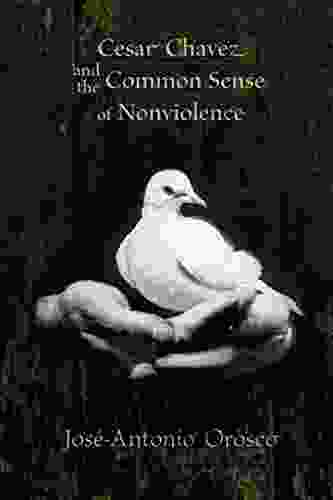
 Ted SimmonsCesar Chavez and the Common Sense of Nonviolence: A Journey of Hope, Courage,...
Ted SimmonsCesar Chavez and the Common Sense of Nonviolence: A Journey of Hope, Courage,...
 Bobby HowardDiscover the Unwavering Spirit of the Wild West in "Cowboy Honor: The McGavin...
Bobby HowardDiscover the Unwavering Spirit of the Wild West in "Cowboy Honor: The McGavin... Clay PowellFollow ·8.5k
Clay PowellFollow ·8.5k Richard SimmonsFollow ·12.8k
Richard SimmonsFollow ·12.8k Jean BlairFollow ·8.8k
Jean BlairFollow ·8.8k Jordan BlairFollow ·6.2k
Jordan BlairFollow ·6.2k Chad PriceFollow ·2.8k
Chad PriceFollow ·2.8k Charlie ScottFollow ·12.3k
Charlie ScottFollow ·12.3k Aron CoxFollow ·19.8k
Aron CoxFollow ·19.8k Hector BlairFollow ·13.1k
Hector BlairFollow ·13.1k

 Jorge Luis Borges
Jorge Luis BorgesUnlock Your Inner Musician: The Ultimate Guide to...
Embark on a Musical...

 Carlos Drummond
Carlos DrummondQuick Reference Guide To Percussion Instruments And How...
Unleash your inner rhythm with...

 Roberto Bolaño
Roberto BolañoUnlock Your Guitar Potential: The Ultimate Guitar Mastery...
Are you ready...

 Fred Foster
Fred FosterLooking for Lady Dee: A Punk Rock Mystery
By [Author's Name] Looking for Lady Dee is...

 Jacques Bell
Jacques BellJourney into the Mystical Realm of "Heaven Polly Alice...
In the tapestry of literature, where...
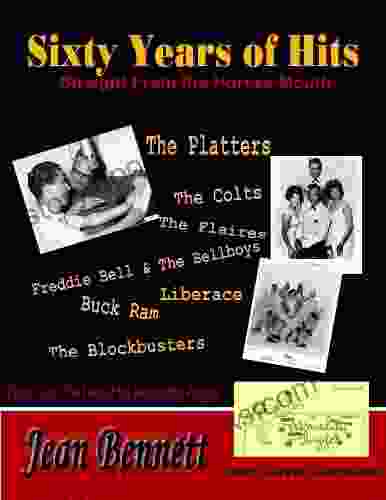
 Julio Ramón Ribeyro
Julio Ramón RibeyroSixty Years of Hits: A Musical Journey Through Time
Music has the...
4.5 out of 5
| Language | : | English |
| File size | : | 1769 KB |
| Text-to-Speech | : | Enabled |
| Screen Reader | : | Supported |
| Enhanced typesetting | : | Enabled |
| Print length | : | 59 pages |
| Lending | : | Enabled |
| X-Ray for textbooks | : | Enabled |


